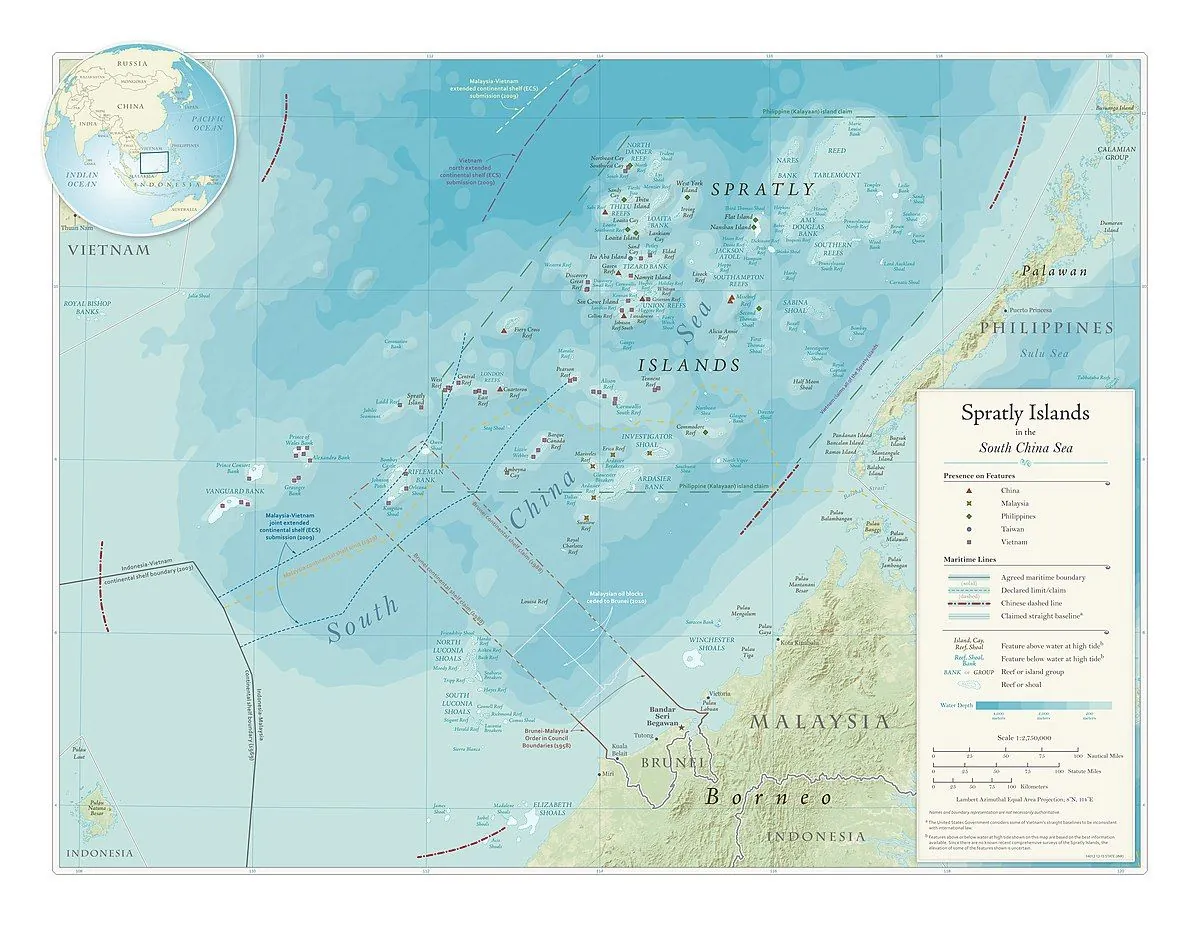In a bold statement at the annual military conference of the United States Indo-Pacific command, Gilberto Teodoro, the Philippines' Defence Secretary, identified China as the primary disruptor of international peace in the region. This declaration, made on August 27, 2024, underscores the escalating tensions in the South China Sea, a vital maritime area that has been a source of contention for decades.
The South China Sea, covering approximately 3.5 million square kilometers, is a crucial waterway that serves as the world's second most used sea lane. It's not just its strategic location that makes it valuable; the area is rich in natural resources, containing significant oil and natural gas reserves, and is home to about 10% of the world's fisheries.
Teodoro emphasized Manila's commitment to protecting its sovereignty and called upon partner nations to address China's actions in the disputed waters. This appeal comes in the context of competing claims by multiple countries, including Brunei, Malaysia, Taiwan, and Vietnam, over portions of the South China Sea.
The maritime dispute has its roots in China's expansive "nine-dash line" claim, which encompasses about 90% of the South China Sea. This claim has been a point of contention, especially since the 2016 ruling by the Permanent Court of Arbitration in The Hague. The court found that Beijing's claims had no basis under international law, a decision that China continues to reject.
The United Nations Convention on the Law of the Sea (UNCLOS) governs such maritime territorial disputes. However, the region has seen increased militarization in recent years, including the construction of artificial islands, further complicating the situation.
The South China Sea's importance extends beyond territorial claims. It's a conduit for more than $3 trillion in annual ship-borne commerce and is surrounded by some of the world's most rapidly industrializing countries. The area's rich biodiversity, hosting over 3,000 species of fish, adds to its significance.
As tensions persist, the international community watches closely. The U.S. Indo-Pacific Command, established in 1947, plays a crucial role in monitoring the situation. The ongoing dispute highlights the delicate balance of power in the region and the need for diplomatic solutions to ensure peace and stability in this vital maritime area.
